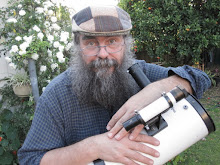Tuesday, November 20, 2018
The Sky This Week - Thursday November 22 to Thursday November 29
The Full Moon is Friday, November 23. Mercury is lost in the twilight. Saturn and Mars are visible low in the
evening skies. Venus is bright in the morning sky. Comet 46P visible in binoculars.
The Full Moon is Friday, November 23. The Moon is at perigee, when it is closest to Earth, on the 26th.
Morning twilight sky on Saturday, November 34 looking east as seen from Adelaide at 4:54 ACDST (60 minutes before sunrise). Venus and the bright that Spica are close together above the horizon. The inset shows the telescopic view of Venus at this time.
Similar views will be seen elsewhere in Australia at the equivalent local time (60 minutes before sunrise)
Evening sky on Saturday, November 24 as seen looking west from
Adelaide at 21:49 ACDST (90 minutes after sunset). Saturn is just on
the horizon with Mars above. The inset shows the telescopic view of Mars at this time..
Similar views will be seen throughout Australia at the equivalent local time (90 minutes after sunset, click to embiggen).
Evening sky on Saturday, November 24 as seen looking east from Adelaide at 21:49 ACDST (90 minutes after sunset). The location of comet 46P is shown. Similar views will be seen elsewhere in Australia at the equivalent local time (and most of the Southern Hemisphere 90 minutes after sunset)). Click to embiggen.
Comet 46P is rapidly brightening and is roughly magnitude 6.0 now, readily seen as a fuzzy blob in binoculars. It may become bright enough to (just) see with the unaided eye in December. More details on how to see it, along with charts suitable for printing, are here.
Printable PDF maps of the Eastern sky at 10 pm AEST, Western sky at 10 pm AEST. For further details and more information on what's up in the sky, see Southern Skywatch.
Venus has returned to the morning skies and is close to the bright star Spica.
Mercury is lost in the twilight by mid week.
Jupiter is lost in the twilight and will return to the morning sky next month.
Mars is in Capricornius and is readily seen in the evening. Mars is now rapidly dimming and shrinking. When sirius rises it is no longer the brightest object in the night sky aside from the Moon. In a telescope you may see a few features but viewing will be difficult.
Saturn is low in the north-western evening sky in the early evening and is setting around 10:45 pm. Its closeness to the horizon means it is no longer a good telescopic target.
Printable PDF maps of the Eastern sky at 10 pm AEST, Western sky at 10 pm AEST. For further details and more information on what's up in the sky, see Southern Skywatch.
Cloud cover predictions can be found at SkippySky.
Here is the near-real time satellite view of the clouds (day and night) http://satview.bom.gov.au/
The Full Moon is Friday, November 23. The Moon is at perigee, when it is closest to Earth, on the 26th.
Morning twilight sky on Saturday, November 34 looking east as seen from Adelaide at 4:54 ACDST (60 minutes before sunrise). Venus and the bright that Spica are close together above the horizon. The inset shows the telescopic view of Venus at this time.
Similar views will be seen elsewhere in Australia at the equivalent local time (60 minutes before sunrise)
Similar views will be seen throughout Australia at the equivalent local time (90 minutes after sunset, click to embiggen).
Evening sky on Saturday, November 24 as seen looking east from Adelaide at 21:49 ACDST (90 minutes after sunset). The location of comet 46P is shown. Similar views will be seen elsewhere in Australia at the equivalent local time (and most of the Southern Hemisphere 90 minutes after sunset)). Click to embiggen.
Comet 46P is rapidly brightening and is roughly magnitude 6.0 now, readily seen as a fuzzy blob in binoculars. It may become bright enough to (just) see with the unaided eye in December. More details on how to see it, along with charts suitable for printing, are here.
Printable PDF maps of the Eastern sky at 10 pm AEST, Western sky at 10 pm AEST. For further details and more information on what's up in the sky, see Southern Skywatch.
Venus has returned to the morning skies and is close to the bright star Spica.
Mercury is lost in the twilight by mid week.
Jupiter is lost in the twilight and will return to the morning sky next month.
Mars is in Capricornius and is readily seen in the evening. Mars is now rapidly dimming and shrinking. When sirius rises it is no longer the brightest object in the night sky aside from the Moon. In a telescope you may see a few features but viewing will be difficult.
Saturn is low in the north-western evening sky in the early evening and is setting around 10:45 pm. Its closeness to the horizon means it is no longer a good telescopic target.
Printable PDF maps of the Eastern sky at 10 pm AEST, Western sky at 10 pm AEST. For further details and more information on what's up in the sky, see Southern Skywatch.
Cloud cover predictions can be found at SkippySky.
Here is the near-real time satellite view of the clouds (day and night) http://satview.bom.gov.au/
Labels: weekly sky
Comments:
<< Home
Hello,
Curious if the quadrantids shower will be visible from the Mollymook area the night of 3-4 Jan 2019.
Adam
Post a Comment
Curious if the quadrantids shower will be visible from the Mollymook area the night of 3-4 Jan 2019.
Adam
<< Home







 Click to read about or order
Click to read about or order Click to read about or order
Click to read about or order Click to read about or order
Click to read about or order Click to read about or order
Click to read about or order




